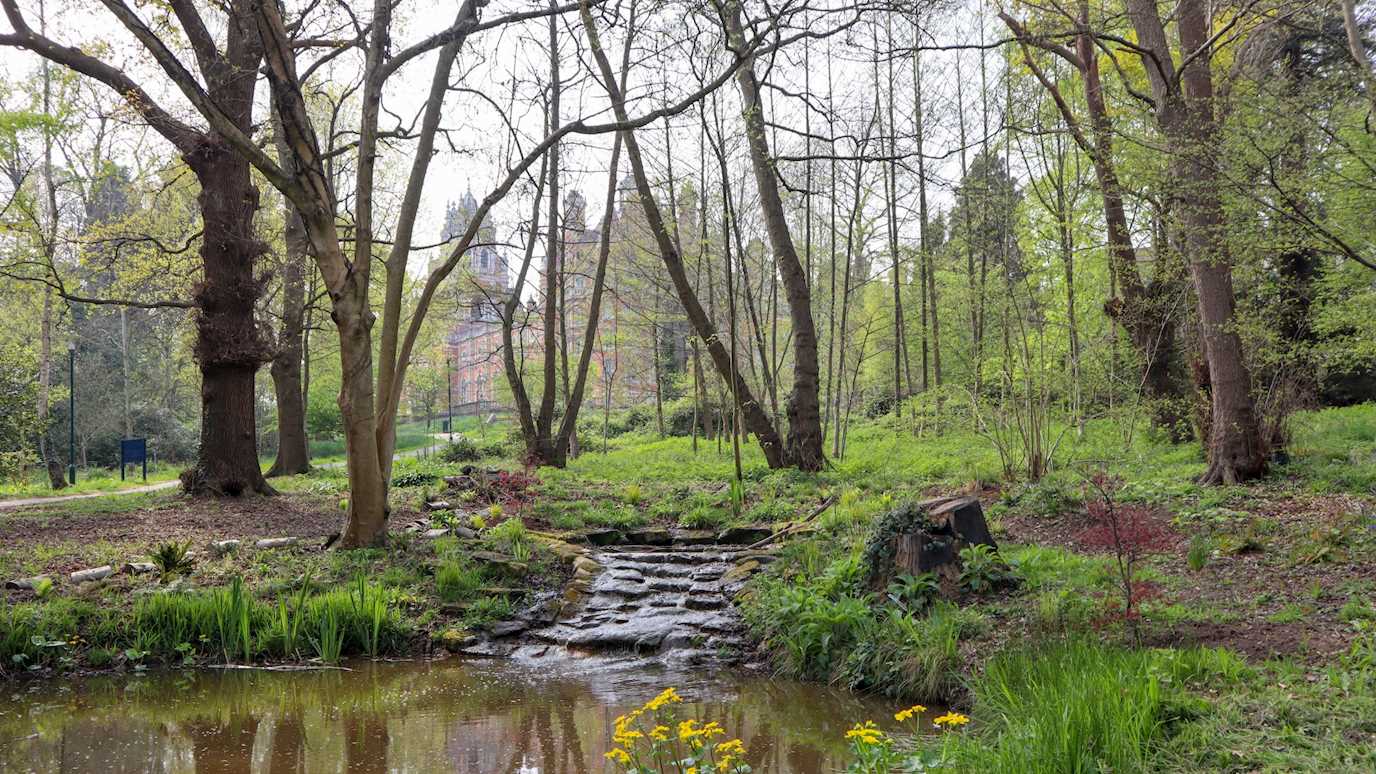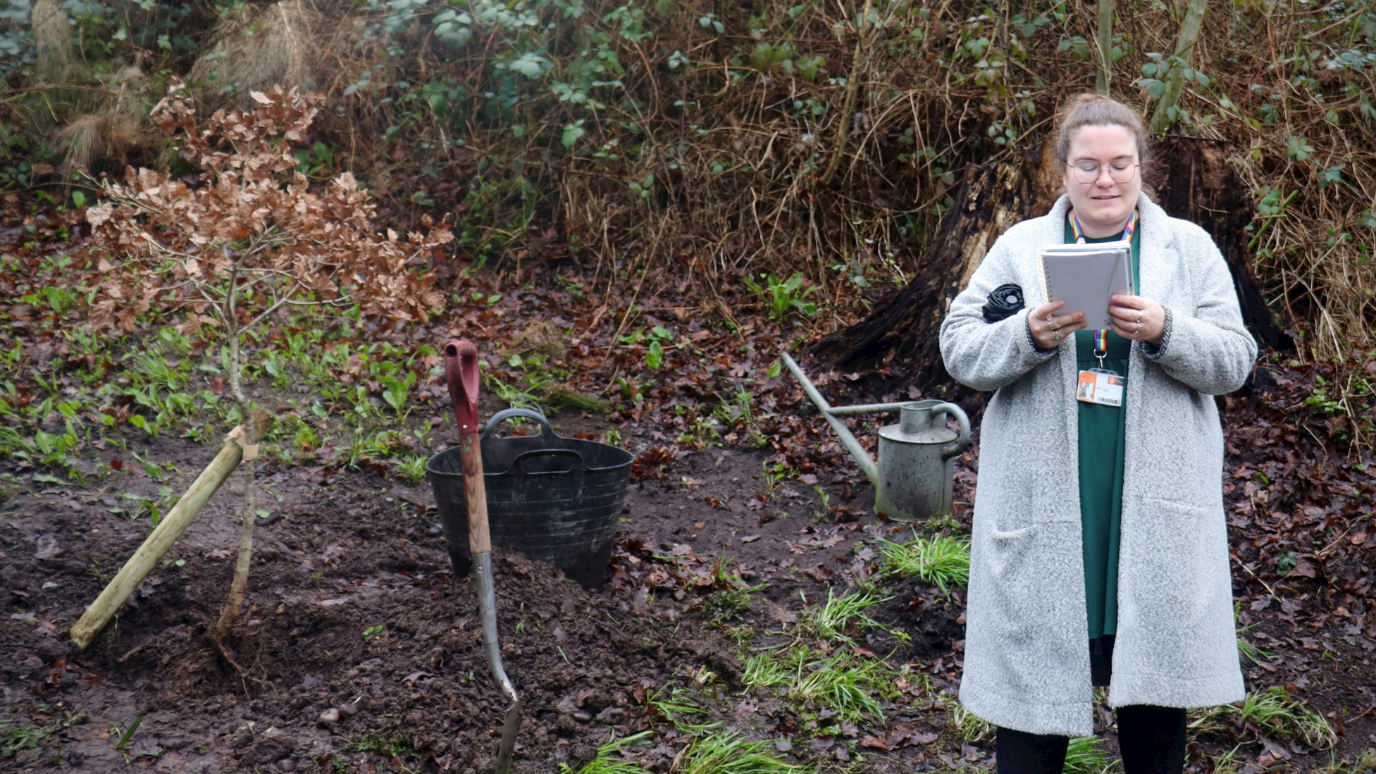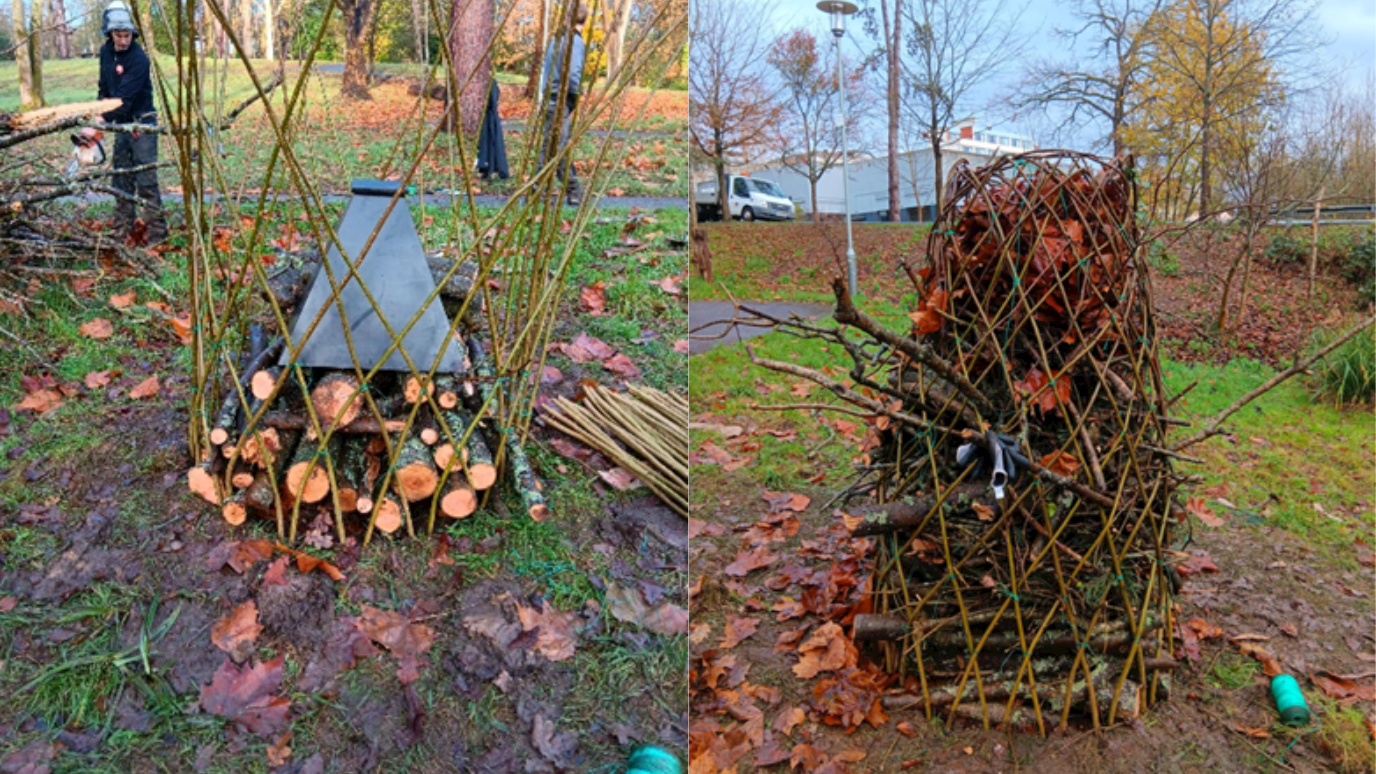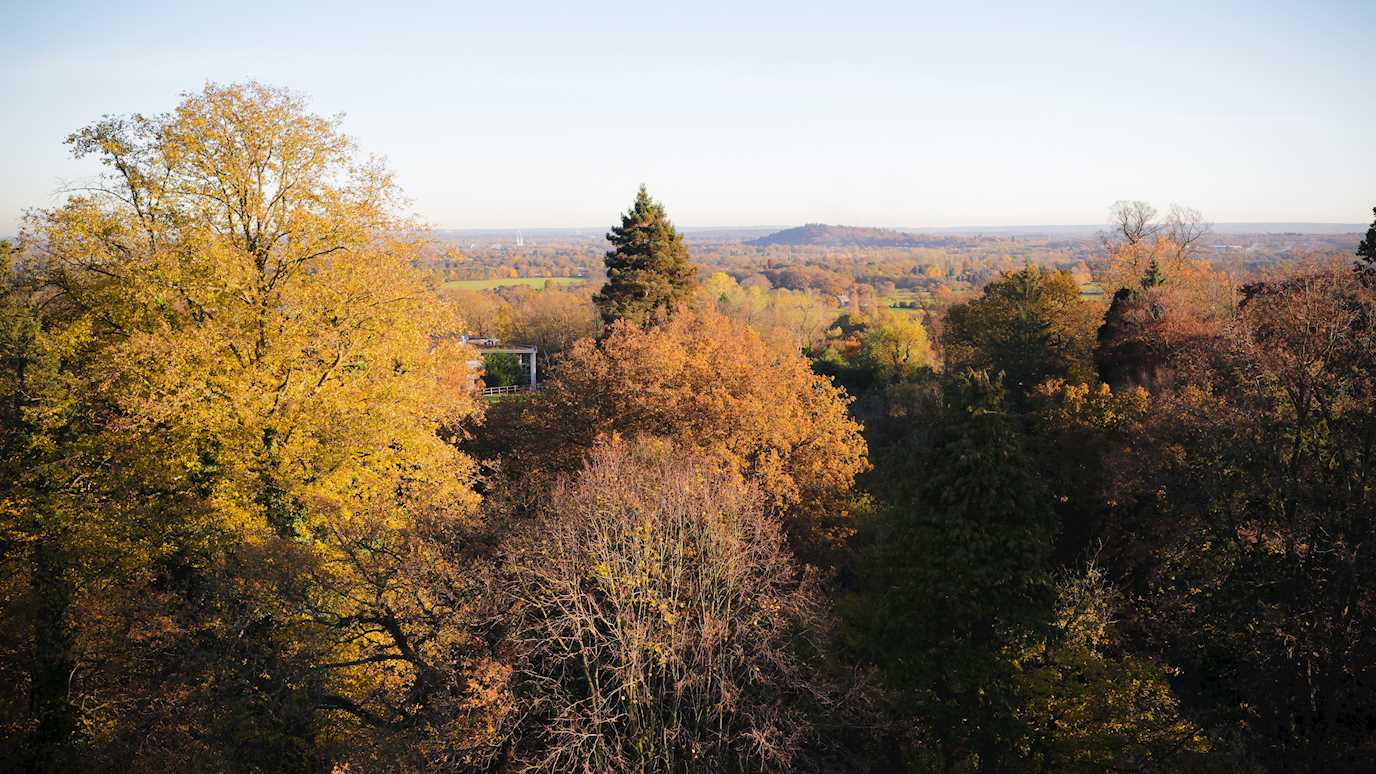We are committed to championing campus biodiversity and promoting academic and collaborative engagement opportunities across the natural campus.
Royal Holloway’s Egham campus exists within a mature 135-acre parkland estate, characterised by a variety of woodland, meadows and watercourses.
The campus, which is part of a vital connective green corridor, hosts a wide range of natural life. The mix of meadow and lawns has a diversity of floral species including a population of Bee Orchids; the woodlands across the site are host to a variety of invertebrates, including stag beetle and fungi; and a natural aquifer feeds several springs and stream systems that are inhabited by our resident bullhead fish and Egrets.
With its diverse ecosystem, this provides an ideal setting for studying life sciences like ecology, conservation, and geography, as well as inspiring fields such as performing arts, creative writing, and health studies.
Our London campus also provides access to a range of green spaces and urban environments, that offer very different habitats and human interactions to our Egham estate.
Supporting and facilitating research and teaching that utilises the grounds’ unique benefits is a key focus, and the Living Campus initiative looks to actively advance this mission.
A brief history of the estate
The original college was founded on Mount Lee, a large farm with a name meaning sheltered hill in Old English. This reflects the unique topography, which features a 50m drop from one side to the other. This change in level offers varying conditions marked by a change in geology, numerous surface watercourses, and sheltered areas with microclimates that foster rich vegetation and wildlife.
The estate retains traces of its 140-year history since the establishment of Royal Holloway College, including the introduction of unusual plants, many of which are now in maturity, the formalisation of ponds and watercourses, and the numerous paths that provide access through the estate.
Activity before the college’s inception also remains evident on campus where centuries of organised farming resulted in large areas of meadow managed by grazing and woodland managed for productive purposes. This legacy results in a site that provides a rich biodiversity resource at a local level, as well as being an important part of a wider regional green corridor that includes areas such as Windsor Great Park and Thames Basin Heaths.
Discover our Living Campus Guide
Further information
Living Campus interpretation boards
If you go for a walk around our Egham campus, you might spot one of our interpretation boards, which explore the different areas and environments we have right on our doorstep.

See the different boards below:
We have a large population of orchids across our site. Find out which flowers and insects you can find amongst the lawns.
Good meadow management helps keep these rich habitats thriving on our campus. See how the various plants and animals in these habitats help the meadows to develop.
Our woodlands are woven with the past; have an explore and you'll see how much they have developed since the development of the Founder's Building in the 1800s.
The flowing springs around our campus make a great home for a wide variety of animals; see the board to find out more.
Volunteering on campus
The gardening team work with student volunteers to complete conservational works in and around the ponds. Together, they manage aquatic weeds, improve water flow and improve habitat continuity, while also preparing areas for new planting schemes.
This hands-on experience not only allows students to develop new skills but also provides insights into operational management and how to care of the natural environment.
More information on Royal Holloway can be found here.

Omnidrome
Omnidrome is a world-leading hub for research, innovation, education and knowledge exchange in air, land, and water-based drones, robotics and autonomous vehicles.
The testing and training facility at Royal Holloway’s Egham campus features a purpose-built hangar for developing and testing specialist and experimental drones, along with dedicated outdoor areas for flight training in a controlled environment.
Omnidrome focuses on educating and supporting students in technical and scientific skills for geospatial analysis, environmental monitoring, and ecological restoration projects. Planned on-campus projects include:
- Aiding the gardening team with aerial mapping and progress surveying of diverse project sites (meadows, Canada copse, etc.).
- Initiating a PhD project on mapping the seasonal availability of food plants for bumble bees.
- Assessing campus nighttime artificial light coverage.

Seasonal walking tours with our Senior Gardener
Aligned with Royal Holloway’s Autumn, Spring and Summer terms, we host seasonal Living Campus walking tours for students and staff with Daniel Steel, our Head Gardener, and Jonathan Howe, our External Spaces Business Partner.
As well as highlighting seasonal features and land management practices, the tours aim to familiarise staff and students with the Living Campus and help them explore how it can be used within their research and teaching.

Nature Positive Universities pledge
The University is excited to have made the Nature Positive Universities pledge.
This means that we are demonstrating our ongoing commitment to restoring species and ecosystems across our Living Campus, and enhancing the University's positive impact on the planet.
Vice Chancellor and Principal, Professor Julie Sanders signed the pledge in July 2024, which will require us to submit annual reports on our progress.
Campus walking maps
There are several self guided walks around the campus that you can explore and see the varied flora and fauna on site.
Find routes on the campus walks webpage.
Peregrine falcons livestream
Royal Holloway has been home to peregrine falcons for many years, but this is the first time we have live streamed their activity, enabling the Department of Biological Sciences to learn more about these incredible birds of prey.
Watch the livestream here.































